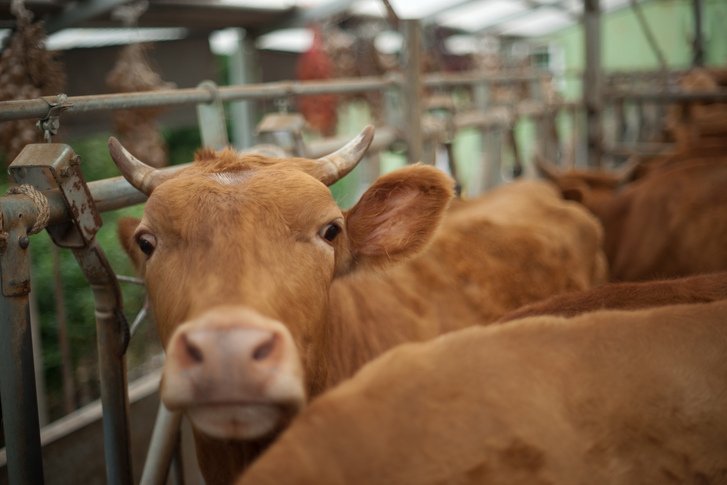Introduction: Unlocking the Wisdom of Korean Proverbs
Korean proverbs are like windows into the rich cultural tapestry of the nation. Understanding these sayings not only provides insights into the language but also offers valuable lessons applicable to various aspects of life. In this post, we will learn about proverbs about animals that are familiar to us: dogs, cats, and cows.
Korean Proverbs with Dogs
닭 쫓던 개 지붕 쳐다보듯 (The dog chasing chickens looks at the roof)
Navigating Failure: When Efforts Fall Short
- It refers to a situation where you lose strength because something you tried to do fails.
- It was an exercise in futility.

똥 묻은 개가 겨 묻은 개 나무란다 (The dog with poop scolds the dog with straw)
Blame Games: The Pot Calling the Kettle Black
- They blame others for their own faults even though they have bigger faults.
- The pot calls the kettle black.
개똥도 약에 쓰려면 없다 (Even dog poop isn’t there when we use it as medicine)
Scarcity in Emergency: Common Yet Unavailable
- Sometimes it is difficult to get something very common for emergency use.
- It’s never around when you need it.
서당 개 삼 년이면 풍월을 읊는다 (A dog recites a poem if it spends three years at a seodang, a village school)
Accumulated Wisdom: Experience as the Best Teacher
- Even people with no knowledge or experience will gain knowledge and experience if they stay in the field for a long time.
- Experience is the best teacher.
Korean Proverbs with Cats
고양이 목에 방울 달기 (Putting a bell around a cat’s neck)
Impractical Endeavors: Discussing the Impossible
- Discussing impossible things that cannot be done, attempt something unattainable or dangerous.
- Bell the cat.
고양이한테 생선을 맡기다 (entrust a cat with fish)
Concerns in Delegation: Entrusting the Greedy
- There are things to worry about when you entrust a task or object to someone who is greedy for it.
- To set the fox to keep the geese. He sets the wolf to guard the sheep.

얌전한 고양이 부뚜막에 먼저 올라간다 (A well-behaved cat goes up to the buttumak, a wood-burning stove, first)
Unassuming Competence: The Quiet Achievers
- A person who appears to be quiet and incapable of anything on the outside does something else or takes care of his own business.
- It’s always the quiet ones.
개밥에 도토리 (Acorns in dog food)
Social Ostracism: An Outcast’s Plight
- A person who cannot get along and is ostracized
- an ostracized[a left-out] person
Korean Proverbs with Cows
소귀에 경읽기 (Reading Confucian classics to a cow)
Teaching the Uninterested: Lessons Lost on Deaf Ears
- No matter how hard you teach and explain, a dull and uninterested person will not understand.
- To sing psalms to a dead horse. Preaching to deaf ears.
쇠뿔도 단김에 빼라 (Take off the horn in one stroke)
Seizing the Moment: Acting Swiftly
- If you are thinking about doing something, you should take action right away without hesitation when you are in the heat of the moment.
- Make hay while the sun shines
황소 뒷걸음치다가 쥐 잡는다 (Cow steps and catches a mouse)
Unintended Success: Finding Opportunity in Mistakes
- Achieving good results from unintended consequences or situations
- The net of the sleeper catches fish.
소 잃고 외양간 고친다 (After losing the cow, fixing the stable)
Learning from Mistakes: Post-Failure Reflection
- There is no use in trying after things have already gone wrong.
- Mend the barn after the horse is stolen.

Conclusion
Korean proverbs offer timeless wisdom, bridging cultural gaps and providing universal insights. As we unravel the meanings behind these sayings, we gain not only linguistic understanding but also valuable lessons applicable to our own lives. In a world where metaphors transcend language, the wisdom of these proverbs becomes a shared human experience.










